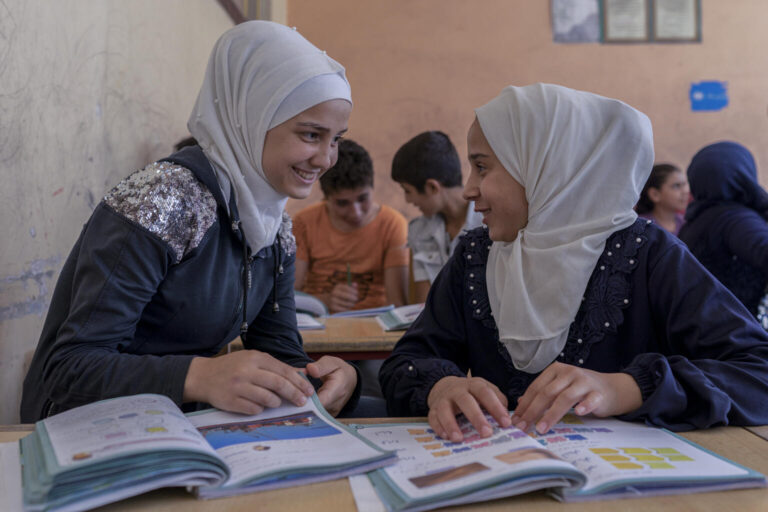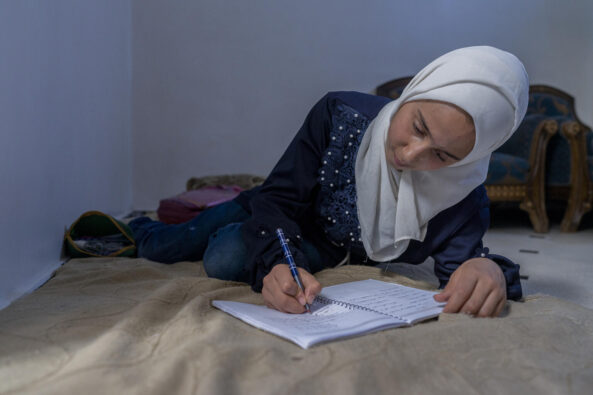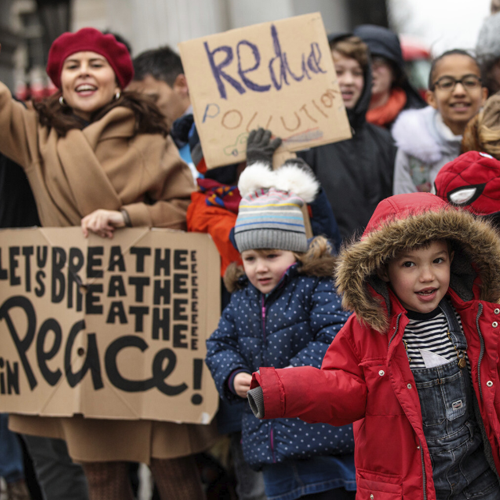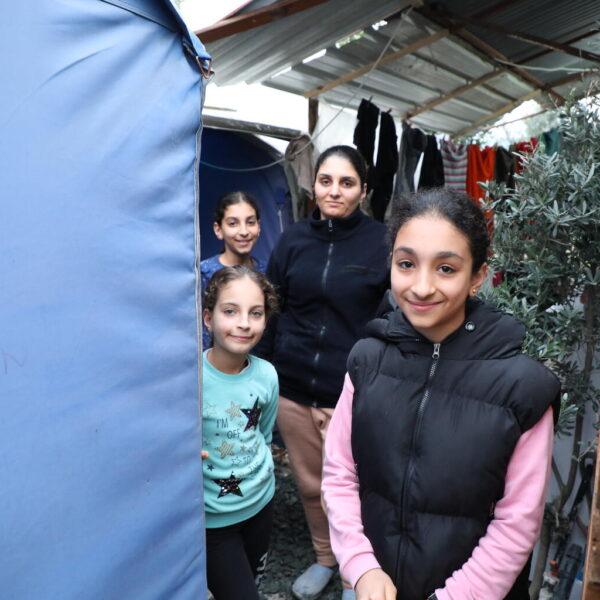The war in Syria has been going on for almost 12 years. This, coupled with the destruction from the February 2023 earthquakes, means that over 6.5 million children need your help urgently.
Please donate to help children affected by the earthquakes.
We are working to protect Syrian children and give them hope for a happy future. We’re there in Syria and in the refugee camps, ensuring children have life-saving supplies including medicine, healthcare, and therapeutic food. And we’re also providing longer-term support to help children, young people and families rebuild their lives. We’re providing education, psychosocial support, and safe spaces for them to play and have some much-needed fun.
You can help us reach more children by making a donation today
How your donations help children like Nahla to rebuild their childhood
“No matter what, I never want to miss out on learning again,” said Nahla, 14. Nahla had to drop out of school in 2019. She started working in her father’s carpentry shop to help her family earn a living.
In 2022, Nahla heard from relatives about the UNICEF-supported ‘curriculum B’ programme. The programme allows children to combine two academic years in one and catchup on missed learning. This gave Nahla an opportunity to resume her education. Something she had always wished for.
Excited and determined to continue learning, Nahla enrolled with her sister Fatima in Level 1 of UNICEF’s ‘Curriculum B’ summer programme at the school near their home. “I was worried because it had been a while since I had been to school. I didn’t have friends there, and I had forgotten many things I had learned in the past. But it all turned out to be fine,” she said.

Nahla, 14, studies with her friend Abeer, 14, during a UNICEF-supported class in Aleppo, North Syria.

No matter what, I never want to miss out on learning again
Nahla, age 14
How else are we helping children in Syria?
We are one of the few humanitarian organisations working inside Syria, as well as being present for refugee families in surrounding countries, including Jordan, Lebanon, Iraq, Türkiye and Egypt. We’re also working to protect, promote and uphold the rights of those Syrian children who have made the perilous journey to Europe in search of a better future.
We are trying to help children with life-changing injuries and disabilities to recover; and to keep children safe by explaining the risks from landmines and unexploded ordnance. We’re also helping repair water sources inside Syria, as well as providing essential water, sanitation and hygiene facilities for Syrian refugees.
Across the region, we are creating child-friendly spaces, which offer learning support and psychological care, as well as a safe space to play. We’re working closely with education authorities to make sure that children can to go to school. We’re working to ensure that more than 3.5 million Syrian children are able to learn; and are helping thousands more get life-skills education.
16-year-old Syrian refugee Tijan takes you on a tour of the Makani - meaning "my space" in Arabic - Centre at a refugee camp in Jordan.




